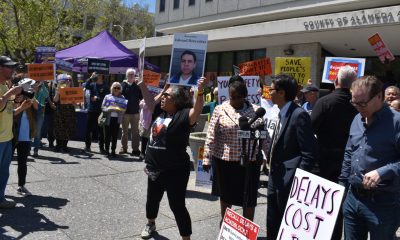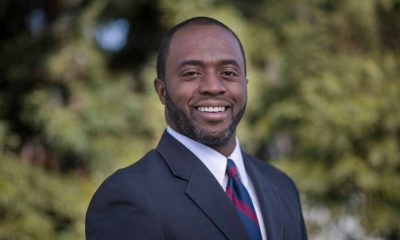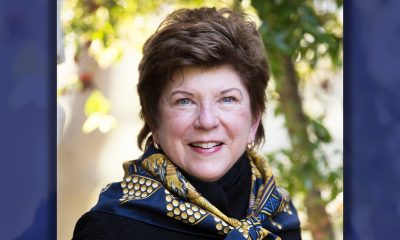Community
Bay Area Mayors, Advocates Urge Congressional Delegation to Make Historic Investments in Housing
Leaders Rally Around Long-term Solutions to Region’s Affordability Crisis

A coalition of elected leaders, private, and philanthropic partners sent a letter (http://ow.ly/DBuJ50FNGsX) to the region’s federal legislators on August 10 calling on them to include historic investments in affordable housing in the upcoming budget reconciliation legislation before Congress.
San Francisco Mayor London Breed, San Jose Mayor Sam Liccardo, and Oakland Mayor Libby Schaaf were joined by many of the region’s leading housing providers, advocates, and experts to urge California members of Congress to:
- Ensure anyone eligible for a housing voucher can get one by making vouchers a federal entitlement.
- Enact House Financial Services Chairman Maxine Waters’ Housing is Infrastructure Act of 2021, which would provide over $600 billion in affordable, equitable housing infrastructure; and focus resources in the region using flexible models such as the Bay Area Housing Finance Authority.
- Strengthen the Low-Income Housing Tax Credit program by increasing the number of credits, which would create over 330,000 new housing units in California.
This coalition stemmed from a regional effort to build on local economic recovery task forces and to align behind key priorities to rebuild and regrow a Bay Area where everyone can thrive. It recognizes that affordable housing is a critical priority to ensure an equitable recovery. The coalition noted:
“In the Bay Area and around California, our communities face an acute shortage of affordable housing, worsened by a pandemic that has further revealed the vast inequities, especially facing Black, Brown, Asian Pacific Islander, and Indigenous communities…”
“…Advancing these priorities will spur desperately needed affordable housing production and ensure all residents have access to a safe, affordable place to call home.”
A copy of the letter can be found at http://ow.ly/DBuJ50FNGsX, and the full text is included below:
The Honorable Dianne Feinstein, U.S. Senate,
The Honorable Alex Padilla, U.S. Senate,
The Honorable Nancy Pelosi, U.S. House of Representatives,
The Honorable Mark DeSaulnier, U.S. House of Representatives ,
The Honorable Anna Eshoo, U.S. House of Representatives,
The Honorable John Garamendi, U.S. House of Representatives,
The Honorable Jared Huffman, U.S. House of Representatives,
The Honorable Ro Khanna, U.S. House of Representatives,
The Honorable Barbara Lee, U.S. House of Representatives,
The Honorable Zoe Lofgren, U.S. House of Representatives,
The Honorable Jerry McNerney, U.S. House of Representatives,
The Honorable Jackie Speier, U.S. House of Representatives,
The Honorable Eric Swalwell, U.S. House of Representatives,
The Honorable Mike Thompson, U.S. House of Representatives
Re: Housing Priorities for the Bay Area Region
Dear Bay Area Congressional Delegation Members:
Thank you for your historic, ongoing leadership in providing critical resources to the nation – and the Bay Area – to recover from the health, economic, and housing consequences of the COVID-19 pandemic. We have come together across the private, public, and nonprofit sectors to work in collaboration toward a more equitable housing recovery in our region, home to over 7.7 million people, and look to your leadership in helping us secure key housing investments, which only the federal government can meet.
Cities and counties across the region convened local economic recovery task forces early in the pandemic, identifying local priorities and actions to provide immediate relief and advance local recovery strategies. To build on the work of the regional economic recovery task forces, a coalition of public, private, and philanthropic partners came together to identify our region’s most pressing state and federal priorities to ensure an equitable recovery. Common across the Bay Area was the recognition of affordable housing as a critical priority to ensure an equitable recovery.
In the Bay Area and around California, our communities face an acute shortage of affordable housing, worsened by a pandemic that has further revealed the vast inequities, especially facing Black, Brown, Asian Pacific Islander, and Indigenous communities. While there are numerous causes, millions of California families are housing insecure:
- Tens of thousands are homeless. In 2019, 35,028 individuals were experiencing homelessness in Bay Area counties.
- Overall, 137,500 households, including 86,600 low-income Bay Area households, are at risk of eviction and collectively owe $256 million in rent debt. If 10% of currently at-risk households became homeless, that would lead to a 44% increase in homelessness.
- The vast majority of renters who are behind on their rent have experienced job and income losses during the pandemic: 78% have lost employment income, while 81% earn less than $75,000.
- As of 2017, 71% of necessary permits were issued for above moderate-income units, compared with only 9% to 13% for either very low, low, or moderate-income units in the current 2015 to 2023 housing cycle.
- Due to generations of disinvestment, Black, Latinx, Native American, Mixed/other renters are more likely to be rent-burdened, particularly among female-headed renter households. Eighty-eight percent of renters who are behind on rent are people of color. Moreover, Black residents represent 29% of people experiencing homelessness in the region but only 6% of Bay Area residents.
As a coalition of leading housing providers, advocates, and experts working in the region, we are requesting that you fight on behalf of the following federal priorities that will directly improve millions of lives in the Bay Area:
- Transform the Housing Choice Voucher program into a federal entitlement so that every household that qualifies for assistance can receive it. We urge you to support House Financial Services Chairwoman Maxine Waters’ visionary effort to advance this goal through the inclusion of the Ending Homelessness Act of 2021 in reconciliation legislation this year. In addition to making vouchers an entitlement, the comprehensive Ending Homelessness Act of 2021 provides protections against discrimination based on source of income and funding for supportive services, creation of permanent affordable housing for people experiencing homelessness, and technical assistance for relevant state and local authorities. Together, these actions could end widespread homelessness as we know it.
- Invest in affordable housing in reconciliation legislation this year by including Chairwoman Waters’ Housing is Infrastructure Act of 2021, which would provide over $600 billion in housing infrastructure; and include in this flexible funding for innovative regional approaches for more equitable housing solutions. This transformational legislation would address the acute shortage of affordable housing and advance equity in the Bay Area and other parts of the country by investing in the creation and preservation of affordable and accessible housing, public housing, and community development, with set-asides for high and persistent poverty communities and measures that improve equitable planning and development processes to affirmatively advance fair housing. In addition, fully funding cross-jurisdictional solutions, such as the Bay Area Housing Finance Authority (BAHFA), within these programs will allow regions and metro areas across the country to elevate a commitment to racial equity, foster innovation to integrate housing solutions with regional transportation and climate strategies, and make each dollar invested in housing goes further than other piecemeal approaches would otherwise accomplish.
- Strengthen the Low Income Housing Tax Credit – a crucial tool in the production of affordable housing – by enacting the bipartisan, bicameral Affordable Housing Credit Improvement Act (AHCIA). Since its inception in 1986, the Low Income Housing Tax Credit (LIHTC) has built or rehabilitated more than 3.5 million affordable housing units, making it the most successful federal policy to produce affordable rental housing. We thank you for your support of this meaningful tax credit. Today, AHCIA is needed to expand its impact in order to meet the scope of the current affordable housing crisis. AHCIA would help build more than two million new affordable housing units across the country, including 330,000 in California alone, in the next decade by increasing the amount of credits allocated to each state by 50 percent, increasing the number of affordable housing projects that can be built using private activity bonds, and making improvements to the LIHTC to better serve victims of domestic violence, formerly homeless students, Native American communities, veterans, and rural Americans.
Advancing these priorities will spur desperately needed affordable housing production and ensure all residents have access to a safe, affordable place to call home. Thank you for contacting Christa Brown with the San Francisco Foundation so we can further discuss these priorities in the near future.
Sincerely,
| London Breed Mayor, City of San Francisco |
Sam Liccardo Mayor, City of San Jose |
Libby Schaaf Mayor, City of Oakland |
| Tomiquia Moss Founder & Chief Executive, All Home |
Margaret Peterson CEO, Catholic Charities East Bay |
Monique Berlanga Interim Executive Director, Centro Legal de La Raza |
| Malcolm Yeung Executive Director, Chinatown Community Development Center |
Don Gilmore Executive Director, Community Housing Development Corporation |
James W. Head President & CEO, East Bay Community Foundation |
| Michael McAfee President and CEO, PolicyLink |
Priscilla Almodovar President and CEO, Enterprise Community Partners |
Cindy Wu Executive Director, LISC Bay Area |
| Leslye Corsiglia Executive Director, Silicon Valley @ Home |
Guillermo Mayer President & CEO, Public Advocates |
Fred Blackwell CEO, San Francisco Foundation |
| Nicole Taylor President and CEO, Silicon Valley Community Foundation |
Amie Fishman Executive Director, Nonprofit Housing Association of Northern California |
Gloria Bruce Executive Director, East Bay Housing Organization |
| Ellen Wu Executive Director, Urban Habitat |
Alicia John-Baptiste President and CEO, SPUR |
Omar Carrera CEO, Canal Alliance |
| Debra Gore-Mann President and CEO, The Greenlining Institute |
Derecka Mehrens Executive Director, Working Partnerships USA |
Alameda County
Board of Supervisors Accepts Certification of Signatures, Will Schedule Recall Election May 14
The Alameda Board of Supervisors unanimously accepted the certification of the results of the valid signatures submitted for the recall of District Attorney Pamela Price on Tuesday evening. The Board will set the election date at a special meeting on May 14. Before the meeting, recall proponents and opponents held separate press conferences to plead their cases to the Board and residents of Alameda County.
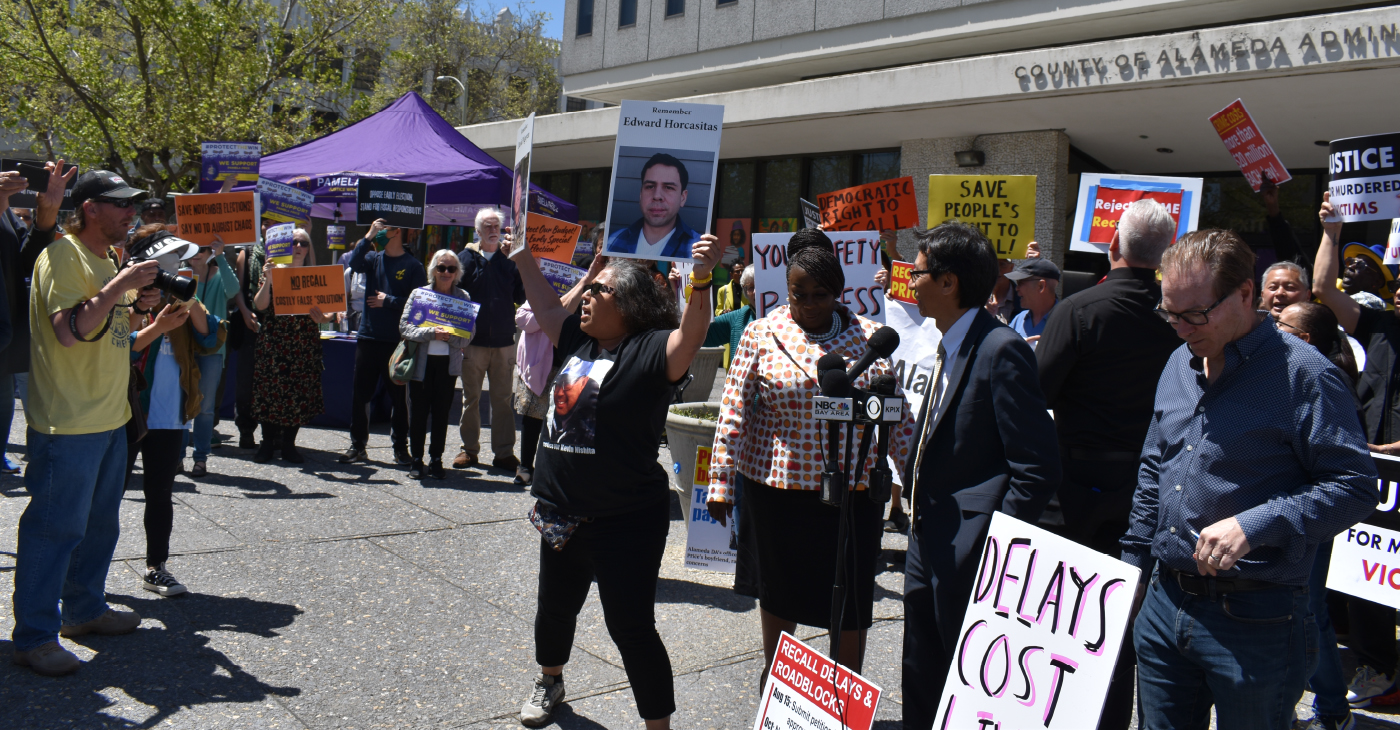
By Magaly Muñoz
The Alameda Board of Supervisors unanimously accepted the certification of the results of the valid signatures submitted for the recall of District Attorney Pamela Price on Tuesday evening. The Board will set the election date at a special meeting on May 14.
Before the meeting, recall proponents and opponents held separate press conferences to plead their cases to the Board and residents of Alameda County.
Price, who up until this point has made little public comment about the recall, held her press conference in Jack London to announce that the California Fair Political Practices Commission has opened an investigation into the finances of the Save Alameda For Everyone (SAFE) recall campaign.
The political action committee (PAC), Reviving the Bay Area, has been the largest contributor to the SAFE organization and has allegedly donated over half a million dollars to the recall efforts.
“Between September 2023 and November 2023, [Revive the Bay Area] donated approximately $578,000 to SAFE without complying with the laws that govern all political committees in California,” Price said.
Price accused the recall campaigns of using irregular signature-gathering processes, such as paying gatherers per signature, and using misleading information to get people to sign their petitions.
SAFE held their own press conference outside of the Alameda County Administration Building at 1221 Oak St. in Oakland, once again calling for the Board to certify their signatures and set a date for the recall election.
Their press conference turned contentious quickly as Price’s “Protect the Win” supporters attempted to yell over the SAFE staff and volunteers. “Stop scapegoating Price” and “Recall Price” chants went on for several moments at a time during this event.
Families of victims urged the Board to think of their loved ones whose lives are worth much more than the millions of dollars that many opponents of the recall say is too much to spend on a special election.
The Registrar of Voters (ROV) estimates the special election could cost anywhere from $15 to $20 million, an amount that is not in their budget.
The Board was presented with several options on when and how to conduct the recall election. They have to set a date no less than 88 days or more than 125 days after May 14, meaning the date could fall anywhere from late July to September.
But the County charter also states that if a general election takes place within 180 days of their scheduling deadline, the Board could choose to use the November ballot as a way to consolidate the two events.
In the event that Price is recalled, the Supervisors would appoint someone to fill the vacancy, though neither the County nor the California charter specifies how long they would have to pick a replacement.
The appointee would serve as district attorney spot until the next election in 2026. Afterwards, either they, if they run and win, or a newly elected candidate would serve the rest of Price’s six-year term until 2029. Price is unique as the only district attorney wo serves a term of six years.
The Board acknowledged that they knew last fall that this recall would come with its own set of complications when Measure B, which changed the local recall charter to match California’s, was first brought to their consideration.
Supervisors Nate Miley and David Haubert opposed discussing the measure, stating that the public would think that the Board was attempting to influence the recall campaign that had already taken off months prior.
“I think ultimately this feels like it’s going to end up in court, one way or the other, depending on who files what,” Haubert said.
Price’s legal team told the Post that the district attorney intended to consider all legal options should the recall election take place.
Miley stated that while he was in support of the amendment to the charter, he did not think it was right to schedule it for the March ballot as it would ultimately cause confusion for everyone involved.
“It has produced some legal entanglements that I think, potentially, could’ve been avoided,” Miley said.
Antonio Ray Harvey
Working Group: More Entry-Level Homes Could Help Solve Housing Crisis
The Community Housing Working Group hosted a briefing on April 23 at Cafeteria 15L in Sacramento. Discussions focused on how the housing crisis in California affects Black and Brown communities and explored ways to provide low-income families and individuals with affordable housing.
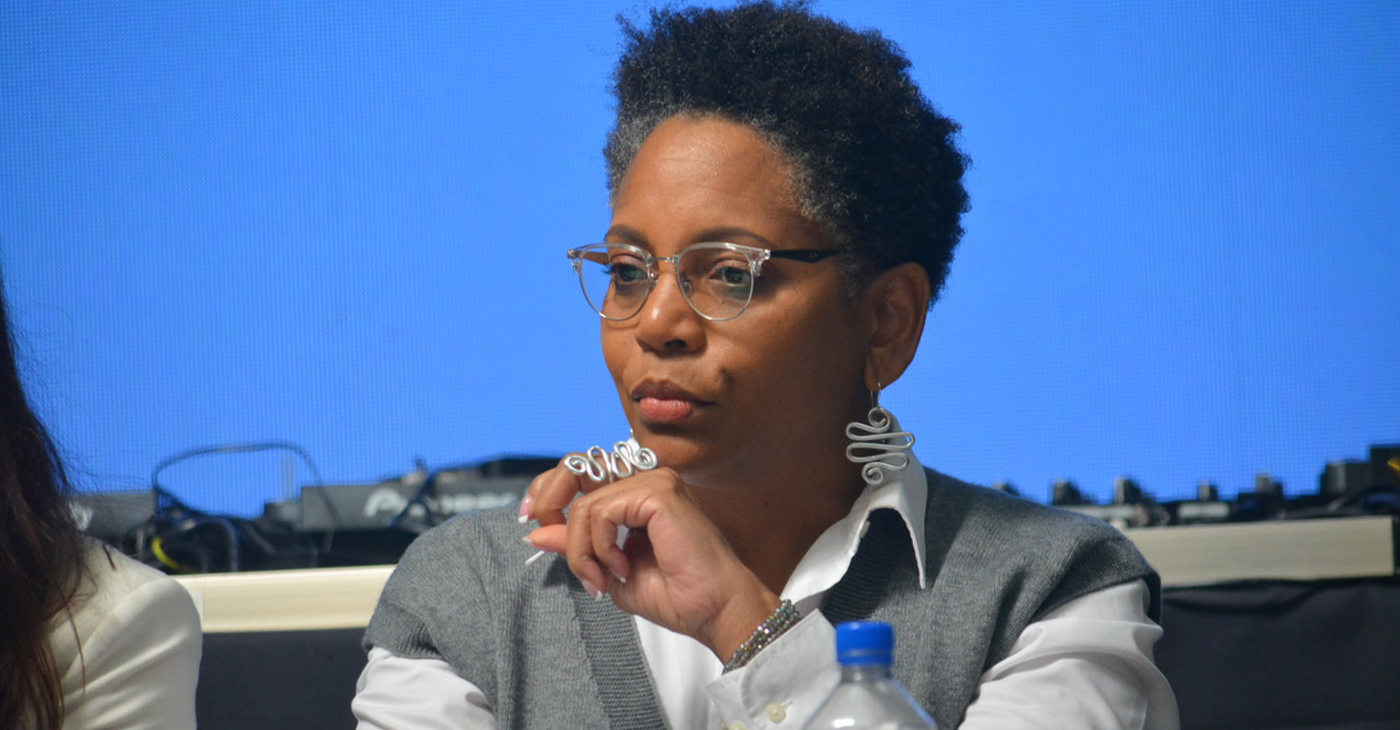
By Antonio Ray Harvey, California Black Media
The Community Housing Working Group hosted a briefing on April 23 at Cafeteria 15L in Sacramento. Discussions focused on how the housing crisis in California affects Black and Brown communities and explored ways to provide low-income families and individuals with affordable housing.
Tia Boatman Patterson, CEO and President of the California Communities Reinvestment Corporation, said “entry-level housing” is not available as it was in the past, adding that affordable units were a major point of entry into homeownership for many families in the Black community.
“My mother bought her first house when I was in junior high. It was an 850-square foot, two-bedroom and one-bathroom house in 1978. That house cost $30,000,” Boatman-Patterson said.
“A woman working part-time at JCPenney was able to afford that house. We don’t build these types of housing now. We do not build entry-level homeownership,” she added.
The Community Housing Working Group is a collection of diverse community organizations from across California working together to address housing challenges in their communities. The organization believes that solving the affordable housing crisis will require creating enough smaller, lower-cost, multi-family homes located near jobs, transit, and good schools.
The briefing included a panel discussion titled, “Exclusionary Zoning: A Look Back and a Path Forward.” Boatman-Patterson participated in that session along with Henry “Hank” Levy, Treasurer-Tax Collector for Alameda County, and Noerena Limón, consultant, Unidos U.S., and Board Member of California Housing Finance Agency.
Boatman-Patterson, a former Associate Director for Housing, Treasury and Commerce in the Office of Management and Budget for the Biden Administration, started her presentation by highlighting how exclusionary single-family zoning is contributing to continued segregation of California communities.
She said that single-family zoning originated in the Bay Area city of Berkeley in 1916.
“By creating single-family zoning and having fenced-off communities, you were able to exclude the ‘others,’” Boatman-Patterson said. “It really was a method to exclude — what they called ‘economic segregation’ — but that was a guise for racial segregation. Single-family zoning, along with redlining, became a systemic approach to exclude based on affordability.”
Title VIII of the federal Civil Rights Act of 1968 — commonly known as the Fair Housing Act of 1968 – is the U.S. federal legislation that protects individuals and families from discrimination in the sale, rental, and financing of housing. It was passed to open the doors to affordable housing.
In 1968, 65.9% of White families were homeowners, a rate that was 25% higher than the 41.1% of Black families that owned their homes, according to National Low-Income Housing Coalition. Today, those figures have hardly changed in the Black community, although White homeownership has increased five percentage points to 71.1%.
Boatman Patterson said the rate has not changed in Black and Brown communities because financing for affordable entry-level homes is almost nonexistent. The homeownership disparities contribute to the disturbing racial wealth gap in the nation, according to the National Low-Income Housing Coalition’s October 2018 report.
“We really must align the financing with the actual building of units, which we haven’t necessarily done. Because of this misalignment, I think we continue to see problems,” Boatman-Patterson said.
California Black Media
State Ed Chief Tony Thurmond Pushes Bill to Train Educators
State Superintendent of Public Instruction (SSPI) Tony Thurmond is advocating for comprehensive training for teachers in reading and math, emphasizing the urgent need to improve student academic outcomes across California. On April 24, during testimony in the Senate Education Committee, Thurmond backed Senate Bill (SB)1115, which aims to provide evidence-backed educator training. The committee passed the bill with a 7-0 vote.
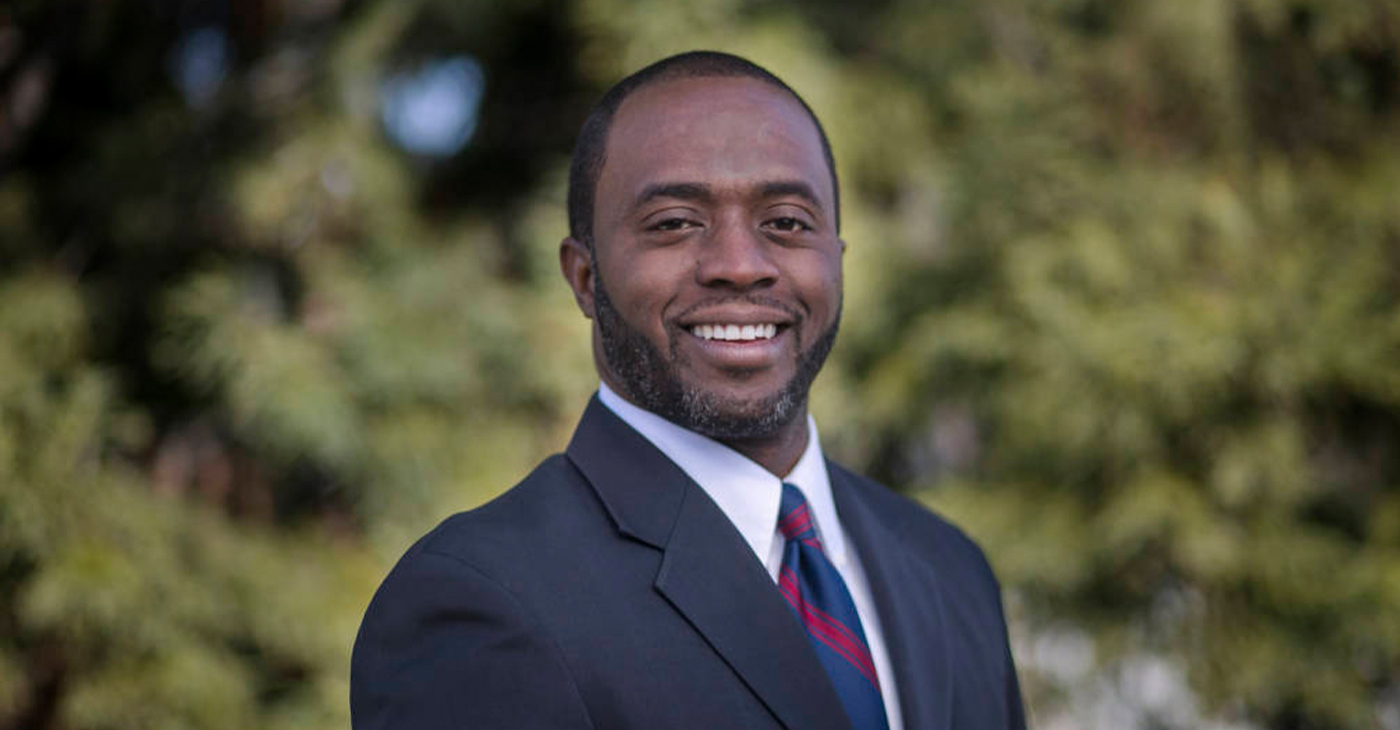
By California Black Media
State Superintendent of Public Instruction (SSPI) Tony Thurmond is advocating for comprehensive training for teachers in reading and math, emphasizing the urgent need to improve student academic outcomes across California.
On April 24, during testimony in the Senate Education Committee, Thurmond backed Senate Bill (SB)1115, which aims to provide evidence-backed educator training. The committee passed the bill with a 7-0 vote.
Thurmond pointed out to the committee that existing funding for educator training in literacy and math only covers about one-third of California’s educator workforce. SB 1115, Thurmond said, would fund the remaining two-thirds.
“This is an issue of moral clarity,” according to Thurmond. “In the fifth-largest economy in the world, and in an age when we have access to substantial brain science about how students learn, it should be unacceptable to train only some educators in the best strategies to teach essential skills.”
SB 1115 incorporates multiple research-backed methods, including phonics, and it aligns with the California ELA/ELD Framework, which encourages biliteracy and multilingualism.
Thurmond emphasized the moral imperative behind the push for enhanced training by noting that 70% of incarcerated adults struggle with reading or are illiterate.
“Every child should feel supported as they learn to read and every teacher should feel confident in their ability to support students’ foundational literacy,” Thurmond said. “SB 1115 is about ensuring that all children have the opportunity to read by third grade, and that all children have a shot at the life-changing outcomes that come from early literacy.”
The next step for SB 1115 is a hearing in the Senate Appropriations Committee on May 6.
-

 Community2 weeks ago
Community2 weeks agoFinancial Assistance Bill for Descendants of Enslaved Persons to Help Them Purchase, Own, or Maintain a Home
-

 Activism4 weeks ago
Activism4 weeks agoOakland Post: Week of April 3 – 6, 2024
-

 Business3 weeks ago
Business3 weeks agoV.P. Kamala Harris: Americans With Criminal Records Will Soon Be Eligible for SBA Loans
-

 Activism3 weeks ago
Activism3 weeks agoOakland Post: Week of April 10 – 16, 2024
-

 Community3 weeks ago
Community3 weeks agoAG Bonta Says Oakland School Leaders Should Comply with State Laws to Avoid ‘Disparate Harm’ When Closing or Merging Schools
-

 Community2 weeks ago
Community2 weeks agoOakland WNBA Player to be Inducted Into Hall of Fame
-

 Community2 weeks ago
Community2 weeks agoRichmond Nonprofit Helps Ex-Felons Get Back on Their Feet
-

 Community2 weeks ago
Community2 weeks agoRPAL to Rename Technology Center for Retired Police Captain Arthur Lee Johnson

